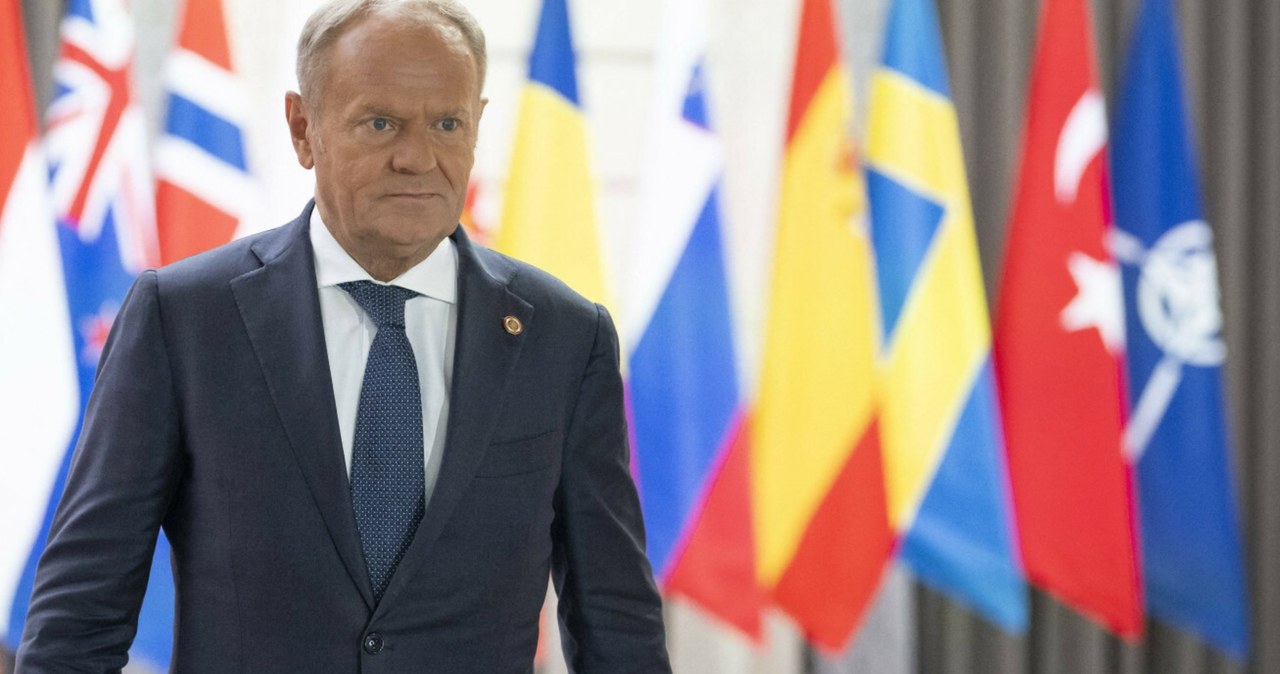8.05.25. Historical meanders memory
What happened in 1025?Under specified a title, it was issued at the end of April, precisely erstwhile with peculiar strength various celebrations took place in our country celebrating the thousandth anniversary of Bolesław Chrobry's coronation, a tiny book by the prof. Urbanian Industry (Profit and S-ka Publishing). This work at the entrance reads:
Were it not for the unexpected imposition on the head of Bolesław Chrobry of the king's crown, 1025 would not have entered so powerfully in the Polish collective memory. It was this first coronation, which raised the early Piast state to the prestigious position of the kingdom, that made it 1 of the most recognizable dates in Poland's history.
This was not only a large political success, but besides a geopolitical success, achieved after a 4th of a century of long efforts filled with unbreakable hopes and bitter disappointments. This success came almost at the last minute before the death of the large ruler, who had already secured himself the position of hegemon in Central and east Europe, but could not discount it with the royal crown for a long time. Finally, she introduced him to the top ruler of imperial status, but he did not enjoy this promotion for a long time due to the fact that he died shortly after the coronation.
A small further is the announcement of what the prof. intends and does not intend to say:
There is most likely no Polish mediterist who, for once, did not mention to Bolesław Chrobry, due to the fact that his influence on our earliest past was immense in all spheres of reality – political-military, socio-economic and cultural-religious. any have besides been tempted to have synthetic presentations of the full of his long rule, alongside which it is hard to pass independently: Karol Szajnocha (1849), Stanisław Zakrzewski (1925), Andrzej Feliks Grabski (1964), Jerzy Strzelczyk (1999) and Przemysław Urbańczyk (2017).
So many and professional literature, in which my contributions are not missing either (see. Boleslaw Chrobry – roaring lionUniversity of Nicolaus Copernicus – cz), makes there no reason to remind here of his colorful résumé, apart from the long past of Bolesław's efforts for a royal crown (Chapter 1) and the facts essential to realize the circumstances in which his coronation took place, i.e. the situation immediately preceding it (Chapter 2), but besides to outline the further series of events (What happened..., p. 10-11.
It should be clear that as to the date itself, as well as the place and course of the coronation, there is no certainty. Urbanczyk writes:
We know very small about Bolesław Chrobry's coronation itself. It is not known what insignia was utilized in it, due to the fact that no of those regiments remained until our time. German wife Mieszko II Rycheza Lotaryńska left Poland in 1031 for Germany, exporting Polish coronation insignia with her, which she most likely handed to Emperor Konrad II. The form of the crown appearing on almost all his portraits was popularized by Jan Matejko in his Post of kings and princes of Poland [...]. Although it does not correspond to aesthetic patterns at the beginning of the second millennium, it inactive constitutes the standard attribute of this ruler, as well as the long mustaches which the large artist gave him [...].
Strangely, the preserved tradition did not even keep the exact date of the event. All we know is that this had to happen any time before Bolesław died, which occurred on June 17, 2025. Today, it is suspected that it was selected on April 18, due to the fact that Easter was at that time, the symbolism of which would give the celebration of the desired sacral dimension. However, this could have been both much earlier and just before the monarch's death, which could have been caused by his abrupt emotion after reaching the desired goal. Unfortunately, the sources we know in no way combine these 2 events.
The same origin ignorance besides conceals the place where this large celebration took place. Her most prestigious and apparent location would be founded by Chrobry after the 1000th year, the Gnieznian archaeologist under the call of the then patron of the state of St. However, this is uncertain, due to the fact that according to reliable information from Bishop Thietmar [...] this temple burned down in April 1018. If it was badly damaged then, it would be hard to bring it to appropriate condition within 7 years. Unless, for example, only a roof was burned, which could be replaced comparatively quickly. The alternate place was the most crucial church building in the country, i.e. the Poznań Cathedral, designed with an extraordinary momentum by Mieszko I (What happened..., pp. 95 and 97).
The 2 mentioned cities, Gniezno and Poznań, are presently fighting for designation of their primary function in an epochal minute for us, organising appropriate celebrations. But if individual is looking for reliable historical information about the various circumstances of this event, they will be found in the quoted work. Another book by Przemysław Urbanczyk (Polish roots), as well as novels, whose protagonist is the first king of Poland, were late the subject of these Entries (see text Games with the past of 27.02.2025).
Millennium celebrations are conducive to the activation of historical memory. In a peculiar way. In March, for example, an interestingly developed epic communicative was published, which is well read under the title Rex Chromium (Sign of Horizon, Kraków 2025). This is an crucial reservation. Although “historians are besides large beletrists,” if you callback the attention from the fresh Elizabeth Finch Julian BarnesBut a historical fresh and a historical communicative are not synonymous. The another is not about creating literary fiction, filling unknown images, heroes and events created in imagination...
Author of the Tale Rex Chromium This Michael Morys-Twarowski – a postgraduate of the Jagiellonian University, where he graduated from law and American discipline and defended his doctorate in history, the creator of many historical works. Rex Chromium is the second, amended and supplemented edition of his book The Birth of Power of 2017. W Note from author Among another things, Morys-Twarowski writes:
Chrobry would have been a large hero of the movie – and it would have worked better in a series, consisting of 4 or 5 seasons. However, not due to the fact that it is regarded as an crucial figure in Poland's history, but due to the fact that it was a unique, charismatic medieval warrior who won various lands.
I wanted to look at Bolesław from specified a perspective, of course with all the rules in force in the characteristics of historians, that is, based on sources and utilizing the literature of the subject. Anyone writing about the first king of Poland must conflict with akin problems: a tiny number of messages about Chrobry and a scope of hypotheses concerning almost all issue related to it. The gathering of Polish, German, Russian, Czech, Hungarian, French or Old Norse sources was like breaking through the thicket of various concepts formulated by historians. If I have adopted number hypotheses or formulated fresh ones, I will explain this in item in footnotes. I hope that they will be seen in technological literature – regardless of whether they will pass the test of criticism – due to the fact that I am convinced that even in a different style, without academic jargon and oversized footnotes, you can compose about crucial things.
And above all, it would be wonderful to see in Bolesław Chrobry's past something more than textbook or academic formulas – a pursuit of a dream that he managed to fulfill. About the fulfillment of the prophecy contained in his name (Boleslaw Rex, pp. 399-200).
In a Tale Rex Chromium of course there is besides a chapter on Bolesław's coronation (see pp. 357-361). The author sits the event in Gniezno, during Easter, but writes about it, starting with a crucial proverb “probably”. There's no certainty about that...
It may besides be worth mentioning another book by the quoted author. In 2023 his name appeared Barbara. A 1000 years of forgotten past of Polish lands, (Publication Mark Horizon, Kraków). This 1 treats the times before the reign of Lives I. The author is characterized by:
Barbarica It's a historical book based on sources and technological literature, mainly in the field of history, but I besides sought the work of archaeologists, linguists and geneticists. It is not a simple compilation, it is besides not a discussion of all concepts and interpretations, but an author's synthesis created according to the principles of historical craftsmanship and let no 1 fool a certain stylistic disinvolt (Barbarica, p. 345).
This "stilistic disinvolt" causes, let us add immediately, that non-specialists curious in "the sometimes forgotten past of Polish lands" can experience reading about the long past of reading pleasure. Especially if it turns out that Lygia with Quo vadis Sienkiewicza was Polish, or erstwhile the legends of Krak and Wanda picked up bodies.
All the above - quoted readings can be viewed as evidence of historical memory. However, it is worth noting that we are actually dealing with oxymoron. After all, human memory constantly retains awareness of any past – closer or further, about events just past and past long ago. It must so be stressed that it is about elements of individual and collective social and cultural memory, about the signs of everything that defines our national affiliation, our national cohesion and our identity. By the way, even a peculiar dictionary was created about 10 years ago, which collects and explains the meaning of these overlapping concepts and another related concepts. — See besides the Bible. Modi memorandi. Memory culture Lexicon, ed. Magdalena Saryusz-Wolska, Robert Traba, co-operation: Joanna Kalicka, Warsaw: technological Publishing home student 2014).
When we talk about historical memory, including historical collective memory, it is worth noting that it is not necessarily just events from ancient times and that the collective memory of different nations depends on the context of events that have affected them, on the position from which the situations are valued. Let's take a book. Cezary Korycki Divergent protocol. past of Poland without hysteria (Literary Publishing House, Krakow 2025).
The title speaks for itself. Divergent Protocol It is simply a book that allows us to look at the past of Poland through the eyes of another nations and collide with our ideas. It turns out that what is apparent to us, to others, is not so obvious, that the same does not in any case look the same, that what we proudly remember, others have long forgotten, although they have participated in it, but besides that among us it is possible to separate “turbolechites” and those who represent alternatively “the pedagogy of shame”.
Korycki is simply a well-known past populariser and maker of historical documentary films. In a note from the wings of his book, he says that he is presently “leading a canal, a podcast, and a fanpage A communicative you don't know. available on YouTube, Spotify and Facebook, and that "is besides host to the broadcast cycle Other stories of Poland on the Polish past Museum channel". Divergent Protocol These are seventeen conversations between the author and historians representing another countries. The talks concern relations with Germany, Lithuania, Sweden, Ukraine, Israel, Slovakia, France, large Britain, Latvia, Austria, the Czech Republic, Belarus, the United States and Russia. Each time, however, another historian is the talker.
In announcements Divergent Protocol you can find examples of questions to which the answers come from the conversation book. Among them, specified as: Do Germans know what the conflict of Grunwald was today? Or: Do Swedes learn about the Flood at school? It turns out that to any degree what is common and essential to us, others have long forgotten. It's the another way around. It's good to know, but...
It is besides worth noting how politicians work in different places of the planet to form their visions of past and how they usage their influence in relation to education to influence the formation of collective awareness of their people. The issue of textbooks to school past in different countries, including information on attempts to make common textbook commissions, is not without reason.
In that case, it may be worth going back to Julian Barnes’s aforementioned fresh at the end of these comments and considering the anticipation of reasoning independently. Her heroine, Elizabeth Finch, the teacher, reminds her students of the opinion of French historian and philosopher Ernest Renan (1823-1892): “The misconception of your own past is part of being a nation.” And in the comment he adds:
Please note, what he did not write, that “The misconception of your own past is part of becoming a nation.” This would besides be true, but far little provocative. We are acquainted with the founding myths on which countries are based and which they are fanatically spreading. For example, myths related to the heroic thought of fighting against the occupier, against tyranny of the aristocracy and the Church; combined with war struggles in which martyrs are born, while their blood feeds the weak and rachitic tree of freedom. But Renan doesn't mean that. He says that misconception of your own past is part of being a nation. In another words, in order for us to accept as fact what we think represents our own nation, we must constantly, virtually all day, through thoughts and deeds, tiny and large, lie to ourselves, persistently repeating to ourselves the refreshing fairy tales for pillows. Myths of racial or cultural superiority. Belief in good monarchs, infallible popes, and fair rule. The belief that the religion in which we were born or adopted is just the only spiritual faction to proclaim fact in the thicket of hundreds of pagan beliefs and heresy.
And this gap between who we truly are and who we are only according to our own conviction brings to mind, in a natural way, the national hypocrisy which we, the British, are a well-known example. That is, commonly known by those who inevitably blinded the look of hypocrisy to their nations (Julian Barnes, Elizabeth Finch, Przecz. Bartłomiej Zaorski, Wydawnictwo Świat Kiki, Warszawa 2023, pp. 60-61.
This kind of attention applies to all nation. Nothing is as simple and apparent as you would like, and “politicians – if you would callback Barnes’ fresh again – are mainly to make people disappointed” (cf. For example, historians, erstwhile without any hesitation, as in our parliament, indicate the date and place of Bolesław Chrobry's coronation – 18 April in Gniezno! “Parliament locuta, causa finita!” will then be written by prof. Urbańczyk, quoted above. It's an imaginary story. Made of pseudofacts. How did Parliament know where and erstwhile the first king of Poland was crowned?, in: ‘Gazeta Wyborcza’ of 6.05.2025).
The game with symbols is essential to politicians. There is no uncertainty about that. besides then – to end these as usual Entries a mention to school – erstwhile the government imposes a valid model of universal education.

















